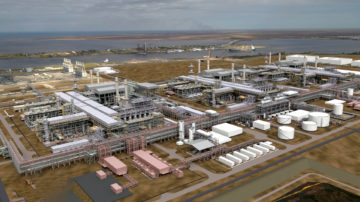 Alex Turnbull in Phenomenal World:
Alex Turnbull in Phenomenal World:
The energy system that underpins contemporary life is marked with blindspots. Take the fossil fuel sector. Facing simultaneous existential and geopolitical vulnerability—due to Russia invading Ukraine, advances in renewable energy, and the climate imperative—there is profound uncertainty about how demand for fossil fuels will transform over the next five to seven years, the time it takes to bring a new gas or offshore oil field online. On the supply side, that uncertainty is matched by the lack of knowledge and monitoring of physical flows of commodities—let alone the kind of detailed information needed to model the ways that geopolitical, climate, and technological disruptions may play out.
Climate campaigners aim for an end to fossil fuel extraction—the minimum requirement to reduce catastrophic and irreversible climatic harm. But with much built infrastructure still relying on fossil fuels, unexpected supply shocks roil households, firms, and governments. New analysis from Isabella Weber, Jesus Lara Jauegui, Lucas Teixeira, and Luiza Nassif Pires shows that energy—in particular petroleum, coal, and oil and gas extraction—are intrinsically more important to inflation than other prices.
What if policymakers could assess inflation with the knowledge that it is driven partly by geopolitical shocks with an unknown timeframe to resolution, and can be approached by policy tools, poured concrete, and steel? These micro considerations do not tend to filter up to the macro modelers whose work informs monetary and fiscal policy. The consequences are significant.
More here.
